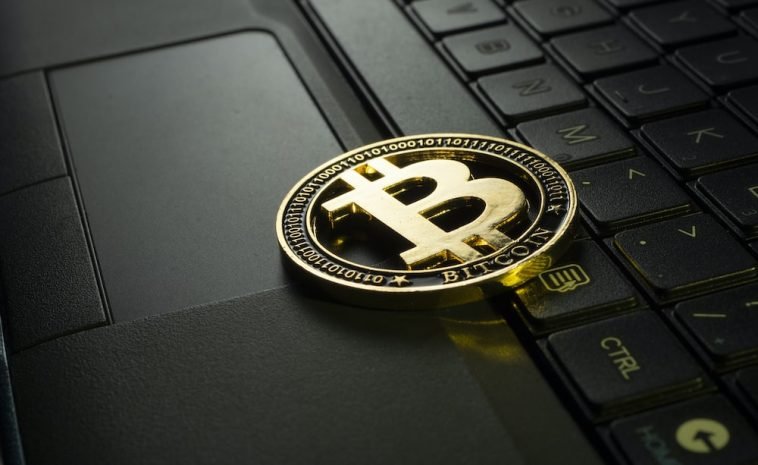Introduction
More people are now looking into investing in cryptocurrencies as they have become more mainstream.
However, with the traction that Bitcoin and other digital assets have gained, it has become a top target for hackers and thieves. Hence, the question of how to store these currencies safely has also come to the forefront.
Crypto Wallets: An Imperative For Crypto Safety
Unlike fiat currencies such as the US dollar or the Euro, cryptocurrencies are not regulated by governments or financial institutions.
Unfortunately, this implies that there’s no centralized authority guarding your investment. And in case your coins are lost or stolen, you have nowhere to turn. As such, it’s imperative to take measures that would secure your digital assets.
An excellent way to do this is by using a crypto wallet. Crypto wallets are physical devices or software programs that store public and private keys. These keys represent codes necessary to access your cryptocurrency and make a transaction.
A “public key” is your cryptocurrency address. It’s like a bank account number that you can give to anyone so they can send you cryptocurrency.
On the other hand, a “private key” serves as a PIN. It allows you to spend the money in your account, so you must keep it safe and secure and never disclose it to anyone. Crypto wallets are broadly classified into two categories: hot and cold wallets:
Hot wallets are connected to the internet and, therefore, more vulnerable to hacks. However, they are more convenient to use as you can access them from anywhere in the world.
In contrast, cold wallets are not connected to the internet and are much safer because they’re not accessible to hackers. But the downside is that they’re less convenient to use as you need to physically connect them to a computer to access your coins.
What are the Safest Ways to Store Cryptocurrencies
Now that we know what a crypto wallet is, let’s take a look at some of the safest ways to store your cryptocurrencies:
1. Hardware Wallets
One of the most popular and secure ways to store cryptocurrency is using hardware wallets. Hardware wallets are physical devices that allow you to keep your digital coins offline.
They are often likened to USB drives, which are small and portable, making them easy to carry around with you.
Some of the most popular hardware wallets available in the market are the Ledger Nano S and the Trezor.
These wallets give you complete control of your private keys and come with several security features, such as a PIN code and optional passphrases, which are additional ways to keep your crypto safe.
In addition, a hardware wallet provides a seed phrase or recovery phrase, a set of 12-24 words that you can use to back up and restore your wallet. So, even if you lose your hardware wallet, you can still access your coins as long as you have the seed phrase.
2. Paper wallets
As the name suggests, paper wallets are cryptocurrency wallets printed on paper. They usually contain a coin’s public and private keys, which you can create using a paper wallet generator such as Bitcoinpaperwallet.com.
Although, paper wallets offer a high degree of security as your keys are offline and not stored digitally anywhere. They are also more vulnerable to physical damage and loss. So, to add a layer of security, you must keep your paper wallet in a water and fire-proof safe or vault. Or make many copies and store them in separate locations rather than carrying them around.
3. Desktop wallets
Desktop wallets are software programs you can download and install on your computer. They’re one of the most popular wallets as they are easy to use and offer a good mix of security and convenience.
Exodus and Jaxx are two of the most popular desktop wallets that give you full control over your private keys and offer a range of security features to protect your coins.
These wallets are a good choice if you are the only person using the computer and no one else can access it.
But, if your computer is infected with malware, your coins could be at risk. So, you must keep your computer updated with the latest security patches.
4. Multisig Wallet
Multisig wallets, also known as multi-signature wallets, are cryptocurrency wallets requiring more than one key to unlock.
Using these wallets would require two or more keys, which could be held by different people or devices to make a transaction.
Some popular multisig wallets include BitGo and Electrum. These wallets are ideal for storing large amounts of cryptocurrency as they offer a high degree of security, as it would be harder for hackers to gain access to all the keys. However, they can be more challenging to set up and use than other types of wallets.
5. Air-gapped Cold Wallet
An air-gapped cold wallet is a type of cryptocurrency wallet completely disconnected from the internet or any form of connection such as Bluetooth, WiFi, Cellular, NFC, and even USB. Instead, it uses scannable QR codes to make a transaction. Verdict and ELLIPAL Titan are two of the most used air-gapped cold wallets.
This type of cold wallet is considered the most secure type of wallet as they are not vulnerable to online hacking attempts. However, they are more complicated, and you may need two devices to make a transaction – one to create the QR code and another to scan it.
General Tips For Keeping Your Cryptocurrency Safe
1. Use a combination of wallets.
To further reduce the risk of losing your coins, you can spread them across different wallets. For example, you can keep some coins in a hot wallet for day-to-day trading and store the rest in a cold wallet for long-term storage.
2. Keep your wallets up to date.
It’s essential to keep your wallets updated with the latest security patches to protect your coins from potential vulnerabilities like malware and hacking attempts.
3. Don’t share your private keys.
Your private keys are like the password to your bank account – you should never share them with anyone. If someone else has access to your private keys, they have control over your coins.
4. Use a strong password and 2-factor authentication.
When setting up your wallets, use strong passwords and enable two-factor authentication (2FA) that would require you to enter a code from your phone or another device in addition to your password.
5. Keep your coins in a safe place.
Once you’ve bought cryptocurrency, avoid keeping them on an exchange for long periods, as it can be hacked. Instead, store them in a personal wallet where you can control your private keys.
Conclusion
“Not your keys, not your crypto” is a mantra in the cryptocurrency community. If you don’t own the private keys to your coins, then they’re not really yours. That’s why choosing a secure wallet you can trust is vital.
Keep in mind, before you decide which wallet to use, always research to ensure that your crypto wallet is reputable and trustworthy. By taking these precautions, you can help ensure that your coins are safe and sound.





GIPHY App Key not set. Please check settings